Discussing early actions for drought in Central America
(Read in Spanish here)
Thematic exchanges are fundamental to promoting connections between the key actors involved in anticipatory action. The Central American workshop on drought preparedness, held in Tegucigalpa, Honduras, from 7-11 March 2022, helped to identify early actions, forecasts and activation mechanisms for drought.
The event was attended by specialists from five National Societies – the Honduras Red Cross, the Guatemalan Red Cross, the Nicaraguan Red Cross, the Costa Rican Red Cross and the Salvadoran Red Cross – as well as strategic allies from the National Institute of Seismology, Volcanology, Meteorology and Hydrology, the National Coordinator for Disaster Reduction in Guatemala and the Permanent Committee for Contingencies in Honduras. Experts from the National Meteorological Institute in Costa Rica also joined the event virtually. The German Red Cross and the Climate Centre provided technical assistance.
Extreme drought is defined as a prolonged period with little or no rainfall. Among the effects on vulnerable communities are the impact on crops and livestock, and the supply of water for human consumption. Unlike other hazards, droughts have progressive effects with a high impact on populations dedicated particularly to agriculture and livestock.
Several initiatives in Central America are working on the design and implementation of mechanisms for anticipatory action for droughts. Anticipatory mechanisms face several challenges linked to technical decisions and humanitarian action. During the workshop, the teams discussed potential early actions in the face of droughts, and the activation mechanisms and forecasts that can be included in early action plans.
“The workshop was key for the determination of the climate thresholds that will be used in the development of early action plans for droughts in Central America,” said Juan Bazo, an advisor at the Climate Centre, “and [there is] agreement among hydro-meteorological services that El Niño is a determining factor in the origin of severe droughts in the region”.
Anticipatory action is an innovative mechanism for anticipating disasters and crises. It was piloted in Latin America in Ecuador and Peru in 2015, and is currently being implemented, in different stages of the process, in nine countries in the region.
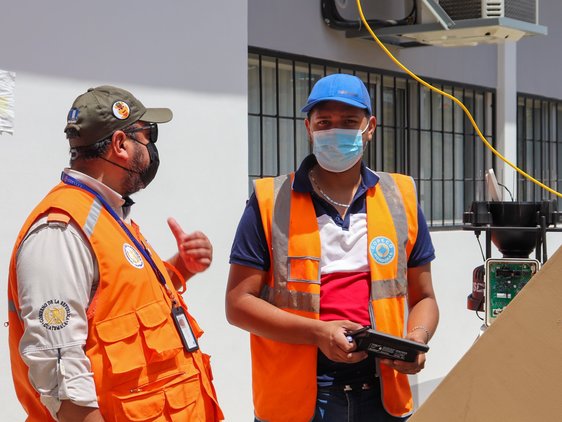
Colleagues from the National Coordinator for Disaster Reduction (CONRED) in Guatemala and COPECO in Honduras. © German Red Cross
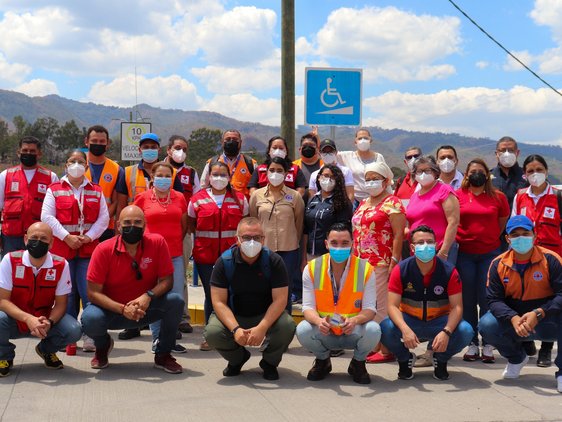
The field visit to the Permanent Committee for Contingencies (COPECO) in Honduras. © German Red Cross
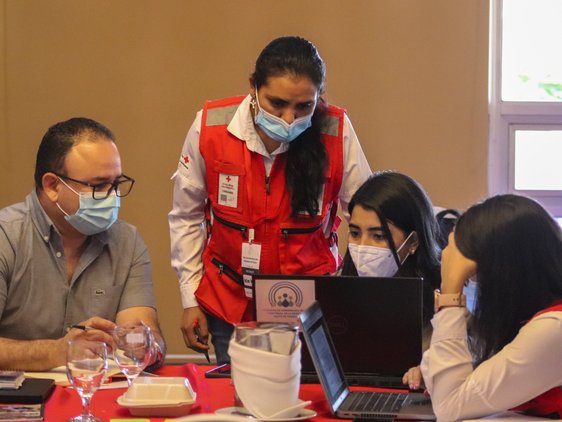
The Honduras Red Cross team and colleagues from hydro-meteorological centres. © German Red Cross
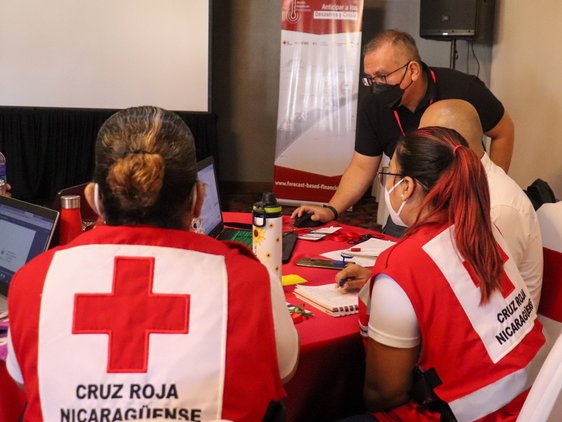
Juan Bazo and the Nicaraguan Red Cross team. © German Red Cross
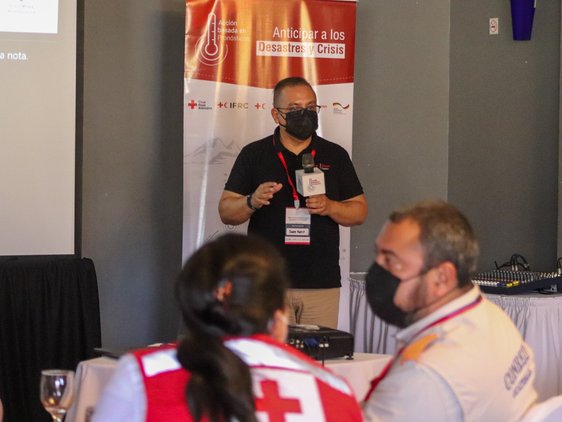
Juan Bazo presents at the workshop. © German Red Cross
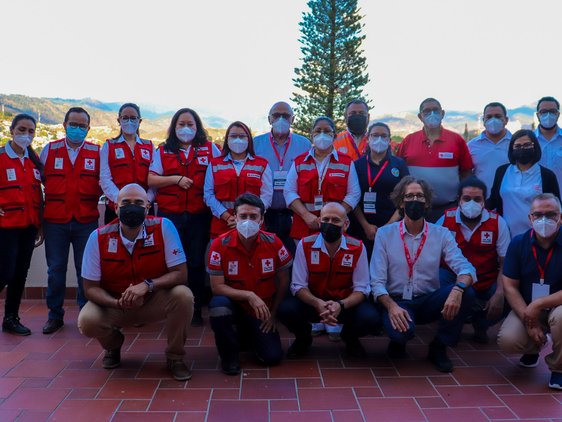
Attendees at the workshop. (c) German Red Cross

Colleagues from the National Coordinator for Disaster Reduction (CONRED) in Guatemala and COPECO in Honduras. © German Red Cross
The field visit to the Permanent Committee for Contingencies (COPECO) in Honduras. © German Red Cross
The Honduras Red Cross team and colleagues from hydro-meteorological centres. © German Red Cross
Juan Bazo and the Nicaraguan Red Cross team. © German Red Cross
Juan Bazo presents at the workshop. © German Red Cross
Attendees at the workshop. (c) German Red Cross
